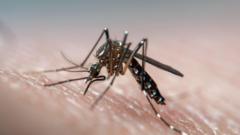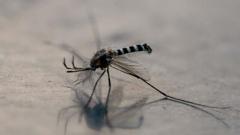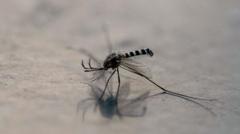Scientists have unveiled a novel and quirky strategy to combat mosquito-borne illnesses, including dengue, yellow fever, and Zika, by rendering male mosquitoes effectively deaf, thereby impairing their mating capabilities. Mosquitoes conduct their aerial mating rituals while flying, with males utilizing their acute hearing to locate females by the sound of their wing beats. Researchers from the University of California, Irvine, undertook experiments that involved genetically altering a specific pathway responsible for the males’ hearing abilities. Remarkably, these modifications resulted in the males failing to make physical contact with females even after being housed together for three days.
It is the female mosquitoes that are responsible for transmitting diseases to humans, making it critical to limit their reproduction to manage the overall mosquito population. The research team focused on Aedes aegypti mosquitoes, notorious for infecting approximately 400 million people annually. They closely analyzed the mating behavior of these insects, which can last from a few seconds up to a minute, and pinpointed a genetic disruption that hinders this process. Their focus was on a protein called trpVa, vital for auditory function in the insects.
In the genetically modified mosquitoes, neurons that usually respond to mating sounds showed no reaction to the wingbeats of potential female mates. Meanwhile, the unaltered, wild male mosquitoes exhibited a robust mating behavior, copulating multiple times and fertilizing almost all the females present in the cage. The research, recently published in the journal PNAS by scientists from the University of California, Santa Barbara, reported that the gene alteration had a profoundly effective outcome, completely eliminating mating opportunities for the deaf males.
Dr. Joerg Albert, a leading expert on mosquito reproductive behavior from the University of Oldenburg, commented on the study, stating that refraining from targeting the auditory senses presents a promising avenue for controlling mosquito populations, albeit requiring thorough investigation and careful management. He expressed that the findings provide a clear molecular indication of how crucial hearing is for mosquito reproduction, asserting that without sound perception, mosquito males could face extinction.
In addition to this innovative technique, researchers are also considering alternative methods such as releasing sterilized male mosquitoes in regions plagued by mosquito-borne diseases. It is crucial to recognize that while mosquitoes are known vectors for disease, they also play essential roles in the ecosystem, providing nourishment for various wildlife and participating in pollination processes.









